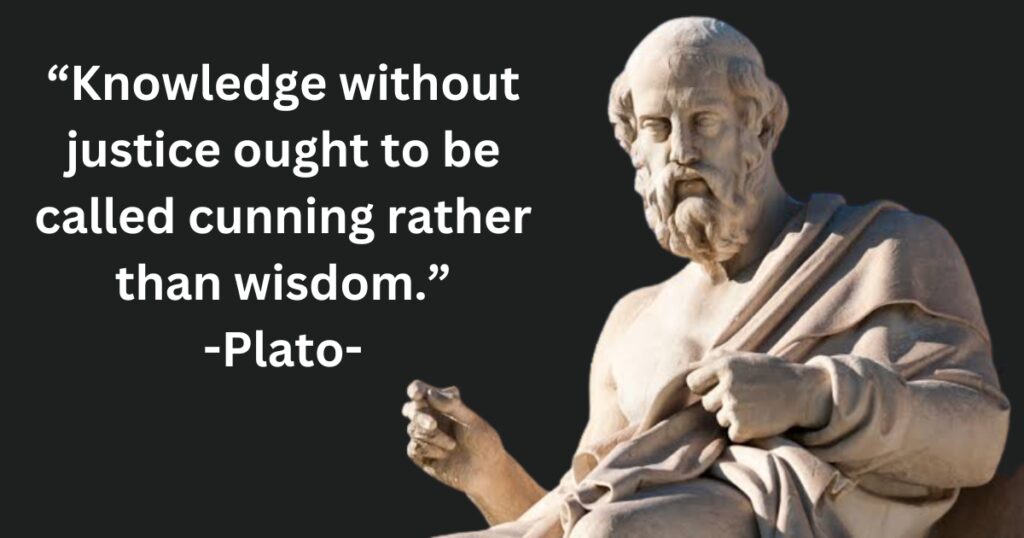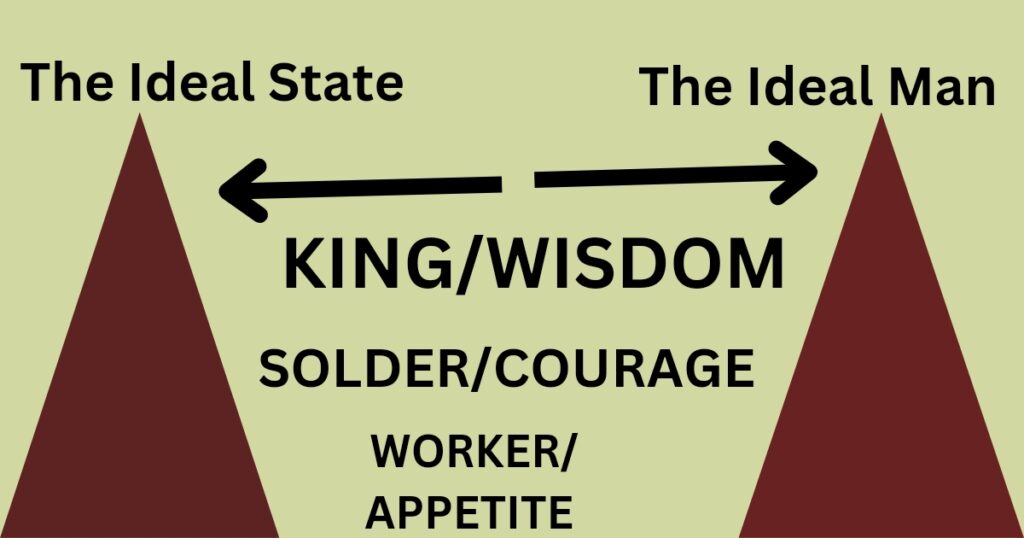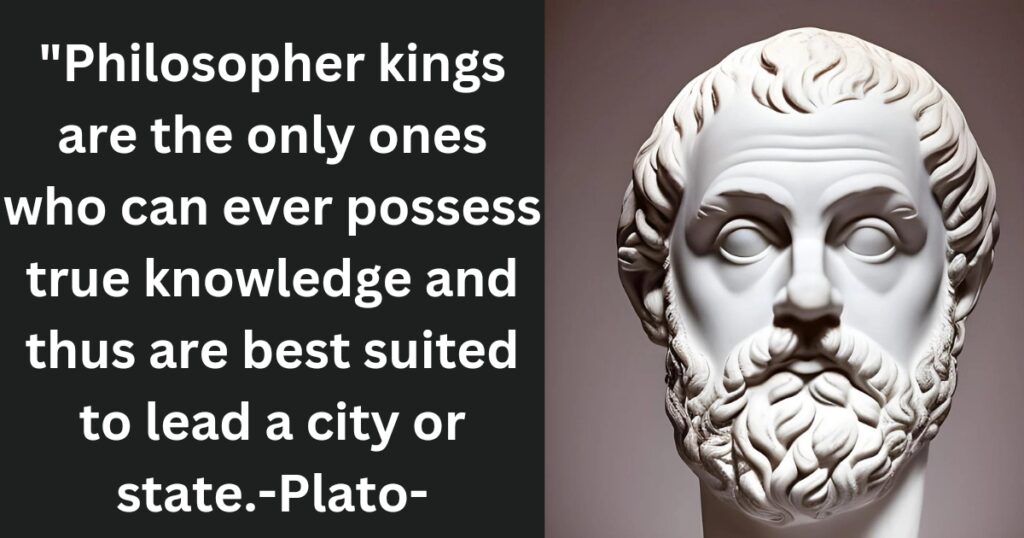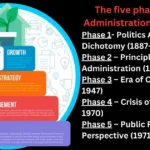Welcome to our in-depth exploration of Plato’s Ideal State, one of the most significant concepts in political philosophy. In this article, we’ll dive deep into the key insights and principles that define Plato’s vision of an ideal society. We’ll examine the role of justice, Classes, education, and the philosopher king in Plato’s framework and explore the potential benefits and drawbacks of his utopian concept. We’ll also examine the lasting influence of Plato’s ideas on political and philosophical thought and consider their relevance in modern societies. So, let’s get started!
Key Takeaways:
- Plato’s Ideal State is a crucial concept in political philosophy.
- Plato’s philosophy and political theory are deeply connected.
- The philosopher king is a central figure in Plato’s Ideal State.
- Plato’s understanding of justice plays a significant role in his vision of an ideal society.
- Plato’s utopian concept of the Ideal State has had a lasting impact on political and philosophical thought.
Plato’s Philosophy and Political Theory:

Plato’s philosophy was heavily influenced by his mentor, Socrates, and focused on the search for truth and knowledge. In his political theory, as outlined in his famous book “The Republic,” Plato believed that the ideal state should reflect the ideal individual. He believed that the state should be organized in a way that maximizes the potential for each citizen to achieve his or her own personal excellence.
In Plato’s view, the ideal state should consist of three classes: the producers (farmers, craftsmen), the auxiliaries (soldiers), and the philosopher-kings (rulers). Each class exists to serve the common good of the whole society, and each individual is assigned to a class based on their natural abilities and inclinations.
Plato believed that the philosopher-king, who has achieved true knowledge and wisdom, is the most fit to govern. He argued that the ruler should be someone who is not seeking power or personal gain, but a person who has the qualities to rule with justice and fairness.
Plato’s Republic:
In “The Republic,” Plato outlines his vision of the ideal society as a way of criticizing the imperfect societies of his time. He believed that the ideal society would be one that is just and virtuous, where each individual is able to reach their full potential and live a fulfilling life.
In order to achieve this goal, Plato proposed a number of radical reforms. He argued that private property should be abolished, and that all goods and resources should be owned in common. He also believed in the division of labor, with each individual specializing in one particular field and working for the good of the society as a whole.
Perhaps most importantly, Plato believed in the power of education. He argued that the state should be responsible for educating its citizens, with the goal of developing their unique abilities and helping them achieve their full potential. In particular, he believed that the study of philosophy was essential for developing the wisdom and insight needed to govern justly.
Overall, Plato’s political theory is based on the belief that the ideal state should be organized in a way that maximizes the potential for each individual to achieve their personal excellence. He believed that the state should be run by philosopher-kings who are guided by wisdom and justice, and that education is the key to achieving these goals.
Understanding Plato’s Ideal State
Plato’s ideal state is perhaps the most renowned aspect of his political philosophy. At its core, it is a vision of an organized and harmonious society, where every individual has a designated function and contributes to the common good. Plato believed that the ideal state was not only desirable but also attainable, although he acknowledged that it would not be easy to achieve.
In Plato’s ideal state, the society is divided into three classes: the producers, the guardians, and the philosopher-kings. At the bottom of the hierarchy are the producers, who are responsible for agriculture, crafts, and trade. Above them are the guardians, who are trained in military and leadership skills to serve and protect the state. At the top of the hierarchy are the philosopher-kings, who are educated and enlightened individuals responsible for governing the state.
Plato believed that the ideal state should be based on the principle of justice. Each individual should play their designated role, and the society should function as a unified whole. Justice, in Plato’s philosophy, is not only a moral virtue but also a fundamental principle of organization and governance.
Another essential aspect of Plato’s ideal state is education. Plato believed that education was the key to creating enlightened and virtuous individuals who could lead the state. Education should focus on developing the intellect and cultivating moral virtues such as courage, wisdom, and justice.
Finally, Plato believed that the ideal state should be ruled by philosopher-kings, who possess the intellectual and moral virtues necessary for effective leadership. Plato believed that philosopher-kings would govern with wisdom, impartiality, and a commitment to the common good.
The Principles of Plato’s Ideal State:
The principles that underpin Plato’s ideal state include the division of labor, communal ownership, and pursuit of the common good. Plato believed that each individual should have a designated role in society based on their natural abilities and inclinations. Communal ownership was essential to ensure that all members of society had equal access to resources and that no one was excessively wealthy or poor. Pursuit of the common good was necessary to ensure that the state functioned as a unified whole, with each individual contributing to the welfare of all.
Plato’s vision of an ideal society was not only radical but also utopian. However, it has remained influential throughout history, inspiring many political thinkers and movements. The next section will examine the criticisms and challenges that have been raised against Plato’s ideal state.
Principles of Plato’s Ideal State:

Plato’s vision of the ideal state is based on certain principles that he believed were necessary for a stable and harmonious society. These principles are rooted in his concept of justice and the ideal way of life, which he believed could only be achieved through the establishment of an ideal state.
One of the key principles of Plato’s ideal state is the division of labor. Plato believed that each individual in society should be assigned a role based on their natural abilities and inclinations. The division of labor would ensure that each person contributes to society in the most effective way possible, leading to a more efficient and productive society.
Another important principle of Plato’s ideal state is communal ownership. Plato believed that all property should be owned collectively by the citizens of the state, with no individual owning any private property. This would prevent the accumulation of wealth by a few individuals and promote equality among all citizens.
| Principle of Plato’s Ideal State | Description |
|---|---|
| Division of labor | Assigning roles to individuals based on their abilities and inclinations |
| Communal ownership | Allowing for collective ownership of property and discouraging private property |
| Pursuit of the common good | Encouraging actions that promote the well-being of the community as a whole |
The pursuit of the common good is also a key principle of Plato’s ideal state. Plato believed that individuals should act in ways that promote the well-being of the community as a whole, rather than prioritizing their own self-interest. This would require individuals to place the interests of the state above their own personal desires and ambitions.
Overall, Plato’s ideal state is based on principles that promote a harmonious and just society. While some of these principles may be controversial or difficult to implement, Plato believed that they were necessary for the attainment of the ideal way of life.
Plato’s Utopian Concept of the Ideal State
Plato’s ideal state presents a utopian vision of a society that prioritizes the common good over individual interests. However, the practicality of this ideal state has been the subject of much debate and criticism.
According to Plato’s theory, the ideal state is one where everyone has a specific role to play, and each person has the necessary education and skills to perform their duties effectively. The state is ruled by a philosopher king, a leader who possesses both knowledge and virtue and acts in the interest of the community.
While this concept seems appealing in theory, it is difficult to implement in practice. One of the main criticisms of Plato’s ideal state is that it does not account for human nature. People are inherently selfish and self-interested, which can lead to conflict and instability in a society that prioritizes communal ownership and common good.
Additionally, the idea of a philosopher king raises concerns over who gets to decide what constitutes knowledge and virtue. Plato’s idea of a philosopher king assumes that there is an objective truth that can be discovered and that the philosopher king possesses this truth. However, the existence of such objective truth is debatable, and the concept of the philosopher king can lead to a totalitarian regime.
Despite its criticisms, Plato’s utopian concept of the ideal state has been influential in shaping political philosophy and societal norms. His vision of a just society where education and virtue play a vital role continues to inspire philosophical and political discourse to this day.
The Role of the Philosopher King:

In Plato’s ideal state, the philosopher king is the ultimate ruler who possesses the wisdom and virtue necessary to govern justly and effectively. According to Plato, the philosopher king is a rare individual who has advanced beyond mere intelligence and possesses deep knowledge of the Forms. Only such individuals are fit to rule in Plato’s ideal society.
The philosopher king is characterized by several key virtues, including reason, self-discipline, and wisdom. These virtues allow the philosopher king to make objective, well-informed decisions that prioritize the common good over personal interests.
Plato believed that the philosopher king was integral to the stability and success of the ideal state. The philosopher king’s wisdom and virtue ensure that the state is governed justly and harmoniously, with all individuals contributing to the common good. By prioritizing the common good over individual interests, the philosopher king creates a society that is characterized by unity and cooperation.
The Qualities of a Philosopher King:
Plato believed that the philosopher king possessed several key qualities that allowed them to govern effectively. These qualities included:
- Reason: The philosopher king must possess exceptional reasoning abilities and be able to make objective decisions based on sound logic and evidence.
- Self-discipline: The philosopher king must be able to control their desires and ego, prioritizing the common good over personal interests.
- Wisdom: The philosopher king must possess deep knowledge of the Forms and be able to use this knowledge to make informed decisions.
- Courage: The philosopher king must possess courage and be willing to make difficult decisions in the face of adversity.
The Implications of a Philosopher King
The idea of the philosopher king has important implications for political theory and governance. By prioritizing wisdom and virtue over power and wealth, Plato’s theory challenges traditional conceptions of leadership and authority. The philosopher king’s focus on the common good provides a compelling alternative to self-interested rulers who prioritize their own interests over those of their subjects.
However, the philosopher king’s reliance on reason and knowledge has been criticized as elitist and exclusionary. Critics argue that Plato’s vision of the ideal state is unrealistic and impractical, and that it fails to account for the complexities of human nature and societal dynamics.
Despite these criticisms, the idea of the philosopher king continues to be relevant in contemporary discussions of governance and political philosophy. The emphasis on wisdom and virtue as essential components of leadership provides a compelling alternative to the status quo, inspiring us to rethink our conceptions of what makes an effective and just ruler.
Plato’s Ideal Society and Justice:

Central to Plato’s ideal state is the concept of justice. Plato argues that justice in society requires the harmonious functioning of all its parts, with each individual fulfilling their proper role. The individual’s happiness, in turn, depends on their sense of fulfillment in performing their assigned tasks.
Plato’s vision of justice is deeply connected to his understanding of human nature. According to Plato, human beings have a tripartite soul consisting of rational, spirited, and appetitive elements. In his ideal state, individuals are trained to cultivate their rational faculties through education, which enables them to govern their spirited and appetitive impulses.
For Plato, the principle of justice is grounded in the idea of the common good. He argues that individuals should prioritize the good of the community over their individual interests, since the former is necessary to achieve the latter. Plato believed that individuals living within a just society would be more likely to lead fulfilling, meaningful lives since their actions would be guided by the pursuit of the common good.
Plato’s conception of justice and the ideal state has been both influential and controversial, with critiques questioning the practicality and feasibility of his vision. However, his ideas continue to shape contemporary debates on the role of the state in fostering social justice and the importance of the common good in achieving a just society.
The Influence of Plato’s Ideal State:
Plato’s ideal state has left a profound impact on political and philosophical thought throughout history. His concepts and principles have shaped and continue to shape modern societies, inspiring political theorists and policymakers alike.
One notable example is the American founding fathers, who were heavily influenced by Plato’s political philosophy. They incorporated elements of his theory into the design of the U.S. Constitution, particularly the idea of a divided government with checks and balances to prevent tyranny.
Plato’s ideas have also inspired a plethora of political movements and ideologies, ranging from Marxism to libertarianism. For instance, Marxist philosophers have embraced Plato’s vision of communal ownership and the pursuit of the common good, while libertarian thinkers have criticized his emphasis on the role of the state in shaping society.
Plato’s Influence on Education:
Plato’s philosophy has also had a substantial impact on education. His emphasis on the importance of education and the pursuit of knowledge has inspired countless educational institutions and programs, from ancient Greek academies to modern universities.
Plato’s vision of the philosopher king has also influenced the development of educational systems and curricula. Many educators have adopted his emphasis on intellectual and moral virtues, arguing that a well-rounded education should cultivate both the mind and the character.
The Legacy of Plato’s Ideal State:
Plato’s ideal state may be a utopian concept, but it remains a powerful and enduring vision for how society could be organized. His ideas have fueled countless debates and discussions on the nature of governance, justice, and societal harmony, both in his time and in ours.
As we confront contemporary challenges such as climate change, economic inequality, and political polarization, Plato’s philosophy offers a thought-provoking perspective on how we might address these issues. Despite its potential drawbacks and limitations, Plato’s ideal state continues to inspire us to imagine a better world.
Criticisms of Plato’s Ideal State:

Despite its enduring influence, Plato’s Ideal State has faced significant criticisms and challenges that call into question the feasibility and practicality of his theory.
One major criticism of Plato’s Ideal State is the potential for authoritarianism and the suppression of individual freedoms. Critics argue that Plato’s emphasis on the common good and communal ownership can lead to a lack of respect for individual rights and personal liberty.
Additionally, Plato’s emphasis on the philosopher king as the ideal ruler has been challenged as elitist and impractical. Critics argue that such a system would lead to an overly homogenous ruling class that lacks diversity and representation of different perspectives.
“The vision of Plato’s Ideal State is a utopian dream that is impossible to achieve in reality.”
Another challenge to Plato’s Ideal State is the difficulty of implementing his vision in practice. The practical challenges of communal ownership, the division of labor, and the pursuit of the common good have led many to question whether Plato’s utopian concept is attainable in reality.
Finally, Plato’s Ideal State has been criticized for its lack of inclusivity and diversity. Critics argue that Plato’s emphasis on uniformity and homogeneity ignores the richness and value of different cultures, traditions, and perspectives.
Despite these criticisms, Plato’s Ideal State remains a significant contribution to political philosophy and continues to shape contemporary debates on governance and societal harmony.
Plato’s Ideal State and Ancient Greek Political Philosophy
Plato’s ideal state must be examined within the context of ancient Greek political philosophy. The Greeks were pioneers in political thought, exploring ideas of citizenship and democracy that continue to shape modern societies. Plato was influenced by his predecessors, such as Socrates, and contemporaries, such as Aristotle, in developing his political theory.
A key concept in ancient Greek political philosophy was the idea of the polis, or city-state. The city-state was understood as a community of citizens who shared a common language, culture, and identity. Plato’s ideal state builds upon this concept, envisioning a society that is united in pursuit of the common good.
| Philosopher | Ideas |
|---|---|
| Thucydides | History as a political tool |
| Aristotle | Natural law and virtue ethics |
| Plato | Ideal state and philosopher kings |
Plato’s philosophy was also influenced by the political struggles of his time. The Peloponnesian War between Athens and Sparta had led to a sense of disillusionment with democracy, which Plato saw as prone to corruption and instability. His ideal state was designed to provide an alternative to the flaws of democracy, with a ruling class of philosopher kings who possessed the wisdom and selflessness to govern in the interests of all citizens.
The ideal state was not an isolated concept in ancient Greek political philosophy, with other prominent theories competing for dominance. For example, Aristotle believed that the best form of government was one that reflected the character of the people it governed, advocating for a moderate mix of democracy and oligarchy. Both Aristotle and Plato recognized the importance of education in shaping citizens’ values and beliefs, but differed in their visions for the role of the state in providing it.
Plato’s Ideal State and Contemporary Political Thought:
Plato’s ideal state has had a significant impact on contemporary political thought, with his concepts and principles informing political debates and discussions on issues such as justice, democracy, and the role of the state. His philosophy has been praised for its emphasis on the pursuit of the common good and the importance of education in shaping individual and societal values. At the same time, his ideal state has been criticized for being impractical and utopian, with some arguing that the emphasis on hierarchy and rule by an elite is undemocratic.
Despite these criticisms, Plato’s ideal state remains a valuable contribution to political philosophy, offering insights and principles that continue to shape and challenge political thought today.
The Relevance of Plato’s Ideal State Today:

Despite being formulated over two millennia ago, Plato’s ideal state remains a subject of considerable relevance and importance in modern societies. The principles and ideas he outlined in his philosophy have continued to inform discussions and debates on governance, justice, and social harmony.
Plato’s concept of the philosopher king, for example, has influenced contemporary discussions on leadership and the qualities required of individuals in political office. The idea that rulers should possess both philosophical and political expertise has been examined and debated in modern political theory.
The ideal state’s emphasis on education and its role in shaping individuals’ moral character has also been adopted in modern educational philosophy. Plato’s belief that education is crucial to creating virtuous citizens capable of contributing to the common good has informed many educational institutions’ pedagogy and curricula.
Moreover, Plato’s understanding of justice and its connection to a harmonious society has influenced modern discourse on social justice, particularly in the context of distributive justice and equality.
While some may view Plato’s ideal state as utopian and impractical, it remains a thought-provoking and influential contribution to political philosophy. Its potential future applications and adaptations continue to be explored, demonstrating its ongoing relevance in shaping contemporary governance debates and discussions.
Conclusion
Throughout this article, we have explored the key insights and principles of Plato’s ideal state. We have discussed the connection between Plato’s philosophy and his political theory, and examined the concept of the ideal state in detail. We have explored the principles and characteristics that define Plato’s vision of the ideal society and examined the role of justice, education, and the philosopher king in this context. We have also considered the utopian nature of Plato’s theory and the challenges that arise when attempting to apply it to real-world contexts.
The Enduring Influence of Plato’s Ideal State:
Plato’s ideal state continues to have a lasting influence on political and philosophical thought. His concepts and principles have shaped and continue to shape modern societies, from political systems and governance structures to discussions on justice and societal harmony. Plato’s idea of the philosopher king as a virtuous ruler has inspired many throughout the ages to seek out wise and just leaders to guide their societies.
The Relevance of Plato’s Theory Today:
Plato’s theory of the ideal state remains relevant and applicable to contemporary challenges. His ideas can inform contemporary debates and discussions on governance, justice, and societal harmony. While it may not be possible to implement Plato’s vision in its entirety, his principles can be adapted to address contemporary challenges and guide us towards a more just and harmonious society.
In conclusion, Plato’s ideal state is a significant contribution to political philosophy and our understanding of how societies should be structured. Its enduring influence and relevance today demonstrate the timeless nature of Plato’s ideas and their potential to guide us towards a better future.
FAQ
Q: What is Plato’s Ideal State?
A: Plato’s Ideal State refers to his vision of a perfectly governed society, characterized by justice, virtue, and harmony. It is an idealized concept that aims to establish the most just and ideal society possible.
Q: What are the key principles of Plato’s Ideal State?
A: The key principles of Plato’s Ideal State include the division of labor, communal ownership, and the pursuit of the common good. These principles contribute to the stability and harmony of the ideal state.
Q: What is the role of the philosopher king in Plato’s Ideal State?
A: The philosopher king is a central figure in Plato’s Ideal State. They possess the qualities and virtues necessary to rule with wisdom and justice. The philosopher king’s role is to lead and guide the state towards virtue and the common good.
Q: How does Plato’s concept of the ideal state relate to justice?
A: Plato’s concept of the ideal state is closely tied to justice. According to Plato, a just society is one where each individual fulfills their appropriate role and contributes to the overall harmony and well-being of the state. The principles of justice are foundational in the functioning of the ideal state.
Q: What criticisms have been raised against Plato’s Ideal State?
A: Some criticisms of Plato’s Ideal State include questions about its feasibility in real-world contexts, concerns about the potential for authoritarian rule under a philosopher king, and the limitations of communal ownership. These criticisms challenge the practicality and implementation of Plato’s theory.
Q: What is the relevance of Plato’s Ideal State in modern societies?
A: Plato’s Ideal State remains relevant in modern societies as it offers insights into governance, justice, and societal harmony. Plato’s ideas can inform contemporary debates and discussions on political philosophy, and his principles can be adapted or applied to address contemporary challenges.
You Can Read: Jean-Jacques Rousseau’s General Will Concept












i read the whole article it is very easy to understand Plato Ideal State. This Article is very easy i clearly understand i recommend you 5 star. Good luck
I read the whole article it is very easy to understand Plato Ideal State. This Article is very easy I clearly understand the plato ideal state. I recommend you 5 star. Good luck!!!!!
Thanks so much it has been so important to me in understanding Plato’s ideas and it’s practicability in modern world.